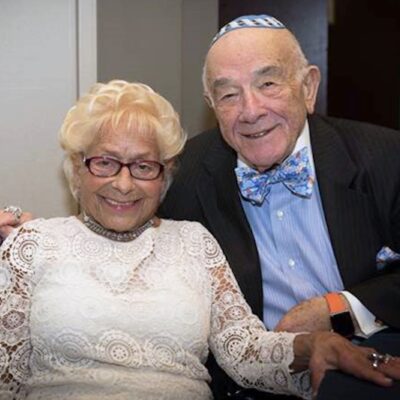Are We Teaching Our Kids How To Vote?

By Rabbi Stuart Weinblatt
My grandmother, who came to this country in the early 20th century to escape the pogroms of Eastern Europe had a simple criteria to decide who she would vote for. She would ask, “Is he or she good for the Jews?”
Her advice has helped to guide me ever since.
What about young people today? Do they take this into account when deciding how they will vote? Do they use a Jewish lens when thinking about who to support?
Realizing that they probably do not, and that they most likely have never been challenged to think about their civic responsibility from this perspective, I decided to speak with my tenth grade confirmation class about how I decided who I would vote for in the most recent election. I approached the subject delicately as I knew I was treading into dangerous, potentially controversial territory. I made it clear that it was not my intention to influence their choice, or to reveal who I had voted for, for that would be an unfair abuse of my position of authority. To be sure that I did not unfairly sway them one way or the other, I waited until after the election to hold the conversation. I explained my purpose was to share with them the thinking and the process I went through, and that if successful, some would think I voted for Trump and some would conclude I had voted for Biden.
I suggested issues which we as Jews should consider, such as the character and moral fiber and integrity of the candidates. I commented on Judaism’s injunction to care for the poor and less fortunate in our society and to work for justice. We talked about the concept of our dual responsibilities to others as well as to our own community. In other words, our universalistic and particularistic obligations as expressed by Hillel’s famous teaching, “If I am not for myself, who will be for me, but if I am only for myself, what am I?” I emphasized our responsibility as Jews to advocate for the State of Israel and its security as a key factor in choosing who will represent them. Finally, respect for those with whom we disagree was also discussed.
As a result, while some may disagree, I said a case could be made that either candidate could be perceived as best based on these factors.
My goal was not to influence who they should choose, which is why we had the conversation after the election, but to encourage them to participate in the democratic process as members of the Jewish people and to take into consideration the teachings and guidance of our tradition when making that decision.
I encourage other educators to have these conversations, difficult and delicate as they may be. They must be done carefully, with appreciation of nuance. By educating our young people to be responsible members of society, who are respectful of others, we are training them to be responsible citizens, performing a service to our republic and making an important contribution to the health of our democracy.
By viewing it from the lens my grandmother passed on to me, we also teach them to do so as proud Jews.
Rabbi Stuart Weinblatt is the founding rabbi of Congregation B’nai Tzedek of Potomac, Maryland and chairman of the Zionist Rabbinic Coalition.













